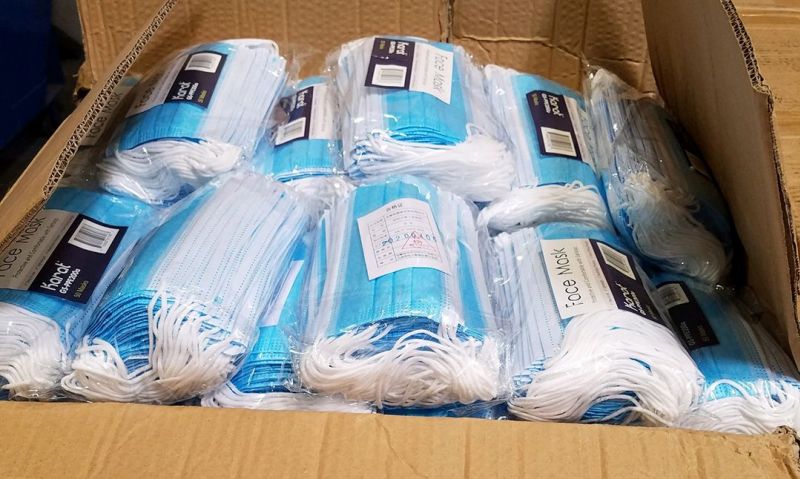
Veteran-owned small businesses are doing what they can to keep supply chains moving.
Members of The American Legion’s Business Task Force have been working around the clock to ensure much-needed items continue to be available to healthcare workers during the COVID-19 pandemic.
Global Procurement Solutions
Global Procurement Solutions (GPS), based in Orlando, has delivered over 52,000 cases of toilet paper, hand towels, disinfectant and other cleaning supplies to VA and Department of Defense healthcare facilities in the last month and a half — about two to three times more product than a normal month. GPS dubbed the reorganization of the supply chain “Operation VA Resupply.”
GPS President and founder Charles Fowler, an Army veteran, said the operation includes deliveries to every VAMC nationwide, even with the nationwide supply chain slowed due to a dearth of truck drivers.
“We went straight to the paper manufacturers and arranged to have full truckload delivers made directly to the prime vendor distribution centers for last-mile deliver to the VAMC’s that they support every day,” Fowler said in an email exchange. “In addition, we coordinated with our chemical manufacturers, Zep and Spartan, to do LTL (less-than-truckload) deliveries direct to both prime vendor (distribution centers) and direct to certain DoD bases and VAMC’s who were preparing for mass COVID-19 casualties to be directed to them for quarantine and treatment.”
Fowler said those efforts shortened the time from order to delivery by as much as 1-2 weeks and relieved pressure on the normal supply chain.
“With paper under control, we continue to work with chemical companies to either prioritize supply to VA/DoD hospitals or identify alternatives that are COVID-19 certified that can be supplied when the preferred products are on back order,” Fowler said.
Fowler said the efforts of veteran-owned businesses, especially in a time of crisis, show their importance.
“We go the extra mile, we do not price gouge, we do not sell to the highest bidder, and the country would do well to ensure that critical government supply chains and manufacturing facilities are controlled and operated by veteran-owned businesses in the future, particularly for critical products needed during emergencies,” he said.
Aldevra
Based in Kalamazoo, Mich., Aldevra is another veteran-owned business which provides food service and medical equipment, as well as installation, project management and staffing. The company has dedicated a page on its website to inform customers about the availability of equipment and supplies Aldevra offers to help with COVID-19, including masks, sanitizers and other hospital and food service equipment.
Aldevra Vice President Maggie Bullard-Marshall said in an email exchange that the biggest challenges in maintaining the supply chain for these products have been uncertain availability and money.
“For example, Chinese officials have implemented two new requirements this month that are hampering our ability to get medical supplies out of China. That makes it difficult for us to tell our customers when their PPE will arrive,” she said. “(And) most manufacturers require cash up front. It is very difficult for a small business to meet customers’ needs while trying to outlie that much money and pray we won’t get taken for it.”
Aldevra is focusing on identifying and stabilizing sources of products, especially those making the products in the U.S., Bullard-Marshall said.
“We’ve received many requests to sell products and we’re trying to vet the products and connect them to the buyers,” Bullard-Marshall said. “We’re also thinking creatively about how we can help our government buyers whose purchasing regulations make it difficult for them to operate in these uncertain, fast-moving times. For example, most manufacturers have minimum order quantities that are too large for many of our buyers. Our landlord is allowing us to place temporary storage units of masks in our parking lot so we can break down larger orders into smaller ones, and our local FedEx has been a great help. We’re also putting easier buying options in place such as placing hand sanitizer on GSA FSS contract and Amazon Business.”
With a mission to provide high-quality products and timely service at the best value, vetting potential suppliers is extremely important, Bullard-Marshall said.
“Our owner (president and CEO Rodney Marshall) is a USMC veteran,” she said. “While we know there is need/demand everywhere, our priority is to our existing VA customers. They support us when there’s not a pandemic. We want to do our part to take care of them now.”
- Veterans Business

